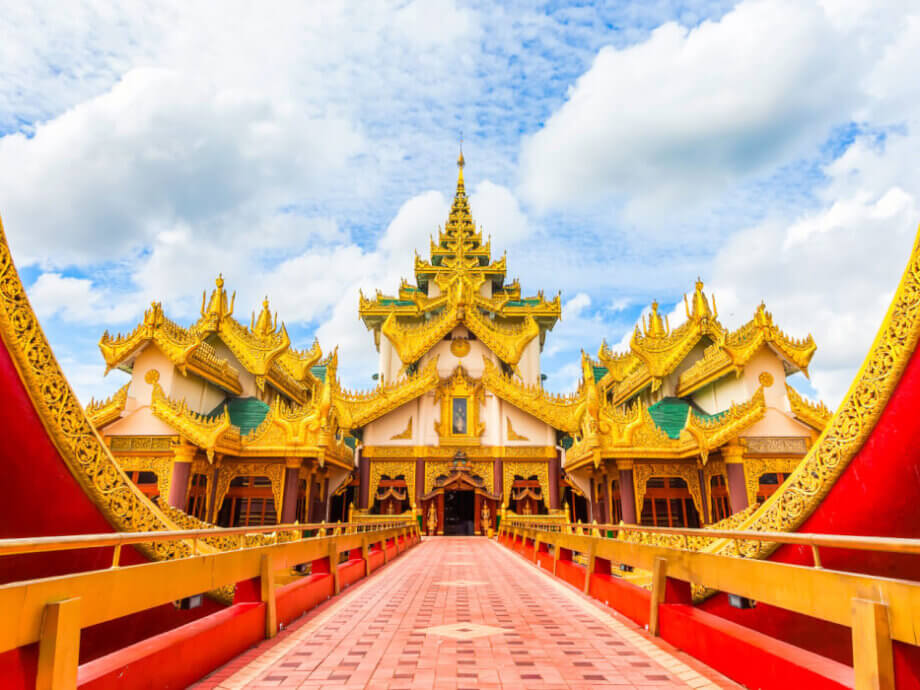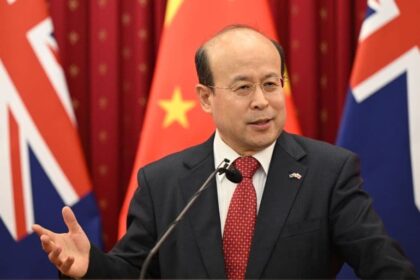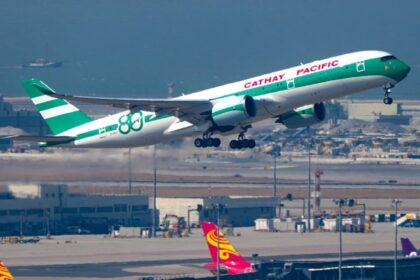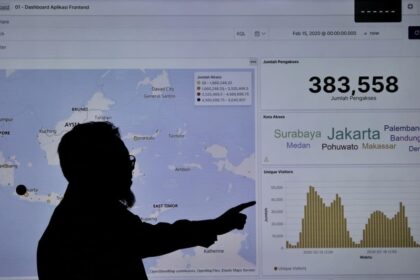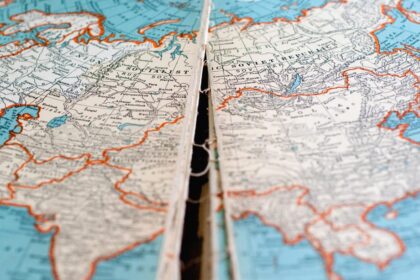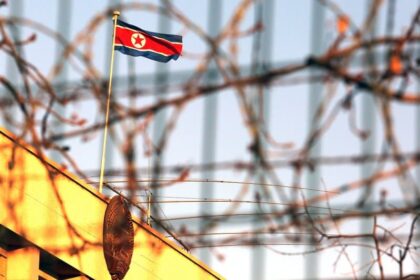Russia and Myanmar Set to Sign Mutual Visa-Free Travel Agreement
Russia and Myanmar are on the verge of a significant diplomatic milestone: the introduction of a mutual visa-free travel agreement. This initiative, discussed at high-level meetings in June 2025, is expected to be formalized in September 2025 during the Eastern Economic Forum. The agreement aims to allow citizens of both countries to travel for tourism and short-term visits without the need for a visa, marking a new chapter in bilateral relations and opening doors for expanded tourism, investment, and cultural exchange.
- Russia and Myanmar Set to Sign Mutual Visa-Free Travel Agreement
- What Led to the Visa-Free Travel Initiative?
- How Will the Visa-Free Agreement Work?
- Why Now? The Surge in Tourism and Economic Ties
- Tourism: Unlocking Myanmar’s Untapped Potential
- Investment Opportunities: Russian Interest in Myanmar’s Hotel Sector
- Cultural and Diplomatic Implications
- Challenges and Considerations
- Broader Regional Context: Russia’s Pivot to Asia
- What’s Next? Timeline and Implementation
- In Summary
What Led to the Visa-Free Travel Initiative?
The groundwork for this agreement was laid during a series of meetings between Myanmar’s Union Minister for Hotels and Tourism, U Kyaw Soe Win, and Russia’s Minister of Economic Development, Maxim Reshetnikov, at the 5th Moscow International Tourism Forum in June 2025. Both sides emphasized the importance of deepening cooperation across government, private sector, and people-to-people exchanges. The discussions covered a range of topics, including:
- Promoting comprehensive cooperation in tourism and investment
- Organizing Familiarization Trips (FAM Trips) to showcase each country’s attractions
- Joint participation in tourism exhibitions
- Facilitating the return of Russian government employees on long vacations abroad
- Attracting Russian investors to Myanmar’s hotel and tourism sector
According to the Russian Economic Development Ministry, the agreement is expected to be signed on the sidelines of the Eastern Economic Forum in September 2025, following the completion of consultations between the two countries’ foreign ministries. Prime Minister Mikhail Mishustin has already given the necessary instructions for Russia’s participation.
How Will the Visa-Free Agreement Work?
The proposed visa-free travel arrangement will allow citizens of both Russia and Myanmar to enter each other’s countries for tourism and short-term visits without the need for a visa. While the specific duration of permitted stays is still under negotiation, such agreements typically allow for visits ranging from 14 to 90 days. The policy is designed to:
- Simplify travel procedures and reduce administrative barriers
- Encourage greater movement between the two nations
- Ensure reciprocity, so travelers from both sides enjoy equal privileges
Currently, Myanmar has already granted visa exemptions for Russian tourists. However, Russian law requires a new bilateral agreement to extend the same privilege to Myanmar citizens. Until the agreement comes into force, Myanmar citizens can apply for electronic visas (e-visas) to visit Russia. Demand for these e-visas has surged, with the number of issued visas doubling in the first four months of 2025 compared to the same period in 2024.
Why Now? The Surge in Tourism and Economic Ties
The timing of the agreement reflects a broader trend: a surge in tourism and economic engagement between Russia and Southeast Asia. In 2024, about 2.5 million Russian tourists visited the ASEAN region, with Myanmar seeing a 60% increase in Russian tourist arrivals in the first quarter of 2025 compared to the previous year. This growth is attributed to active promotion by Myanmar in the Russian market, including participation in exhibitions and forums.
On the practical side, the resumption of direct flights between Yangon and Novosibirsk, starting October 2025, is expected to further boost travel. Myanmar’s national carrier will operate flights twice a week, making it easier for Russian tourists to access Myanmar’s beaches, cultural sites, and natural attractions.
Tourism: Unlocking Myanmar’s Untapped Potential
Myanmar is often described as one of Southeast Asia’s last frontiers for tourism. Its rich cultural heritage, ancient temples, pristine beaches, and diverse landscapes have long attracted adventurous travelers, but the country remains relatively undiscovered by mass tourism. The visa-free agreement is expected to:
- Increase Russian tourist arrivals, drawn by Myanmar’s unique blend of history, culture, and nature
- Encourage longer stays and repeat visits, as travel becomes more convenient
- Promote Myanmar’s lesser-known destinations, such as the Dawei Resort and Maungmagan Beach Resort areas
Familiarization Trips (FAM Trips) for tourism professionals are planned to help showcase these attractions and build awareness among Russian travel agencies and tour operators. Joint participation in tourism exhibitions will further raise Myanmar’s profile as a desirable destination for Russian travelers.
Investment Opportunities: Russian Interest in Myanmar’s Hotel Sector
Beyond tourism, the visa-free initiative is closely linked to efforts to attract Russian investment into Myanmar’s hospitality and tourism infrastructure. During the June 2025 meetings, the Myanmar delegation met with representatives from Cosmos Hotel Group and BN Group, both of which expressed interest in developing hotels and resorts in Myanmar. Discussions focused on:
- Investment opportunities in beach resorts, cultural landmarks, and eco-tourism projects
- Support mechanisms for pilot projects and streamlined approval processes
- Incentives such as tax breaks and favorable land lease agreements for foreign investors
Myanmar’s government has signaled strong support for foreign direct investment, aiming to create a business-friendly environment that supports sustainable tourism development. The involvement of experienced Russian hotel groups is expected to raise the standard of accommodation and hospitality services, create jobs, and stimulate local economies.
Cultural and Diplomatic Implications
The visa-free agreement is not just about tourism and business; it is also a tool for deepening cultural ties and strengthening diplomatic relations. By removing barriers to travel, the agreement will:
- Facilitate greater participation in cultural exchange programs, educational opportunities, and joint events
- Encourage people-to-people connectivity, fostering mutual understanding and goodwill
- Promote smoother exchanges between government officials, business leaders, and tourists
Russia and Myanmar have maintained diplomatic relations since 1948, and their partnership has grown to include cooperation in trade, education, and cultural exchange. The visa-free initiative is seen as a natural extension of these ties, reflecting a shared interest in closer engagement and collaboration.
Challenges and Considerations
While the agreement is widely seen as a positive step, there are practical and political considerations to address. For example, the implementation of visa-free travel requires robust border security, clear eligibility criteria, and effective communication to prevent misuse. Recent regional developments, such as India’s suspension of its visa-free agreement with Myanmar due to security concerns, highlight the need for careful planning and ongoing dialogue.
Nevertheless, both Russian and Myanmar officials have expressed strong commitment to moving forward. Myanmar’s Deputy Prime Minister and Foreign Minister Than Swe has stated that the country is prepared to sign a memorandum of understanding with Russia, and both sides are finalizing the necessary legal and administrative arrangements.
Broader Regional Context: Russia’s Pivot to Asia
The Russia-Myanmar visa-free agreement is part of a broader trend of Russia deepening its engagement with Asia. In recent years, Russia has sought to expand its economic, diplomatic, and cultural ties with countries across the region, including China, India, and members of the Association of Southeast Asian Nations (ASEAN). Initiatives such as the resumption of direct flights, participation in regional tourism forums, and the pursuit of similar visa-free agreements with other Asian countries reflect this strategic pivot.
For Myanmar, the agreement offers an opportunity to diversify its international partnerships and attract new sources of investment and tourism revenue. As the country continues to develop its tourism infrastructure and promote itself as a destination for international travelers, closer ties with Russia could play a key role in its economic growth strategy.
What’s Next? Timeline and Implementation
The mutual visa-free travel agreement is expected to be signed in September 2025 during the Eastern Economic Forum, following the conclusion of negotiations and legal preparations. Once signed, the agreement will come into force after ratification by both governments, with implementation likely in early 2026. In the meantime, travelers from Myanmar can continue to use e-visas to visit Russia, while Russian tourists already enjoy visa-free access to Myanmar.
The resumption of direct flights between Yangon and Novosibirsk in October 2025 will further facilitate travel and is expected to drive a new wave of tourism and business exchanges.
In Summary
- Russia and Myanmar are set to sign a mutual visa-free travel agreement in September 2025, allowing citizens of both countries to travel for tourism and short-term visits without a visa.
- The agreement is expected to boost tourism, with Myanmar seeing a surge in Russian visitors and increased interest in its untapped attractions.
- Russian investors, including Cosmos Hotel Group and BN Group, are exploring opportunities in Myanmar’s hotel and tourism sector, supported by government incentives.
- The initiative will deepen cultural ties and strengthen diplomatic relations, building on decades of cooperation between the two countries.
- Implementation is expected in early 2026, following the signing and ratification of the agreement. In the meantime, e-visas and direct flights will continue to facilitate travel.
- The agreement reflects a broader trend of Russia’s strategic engagement with Asia and Myanmar’s efforts to diversify its international partnerships.


